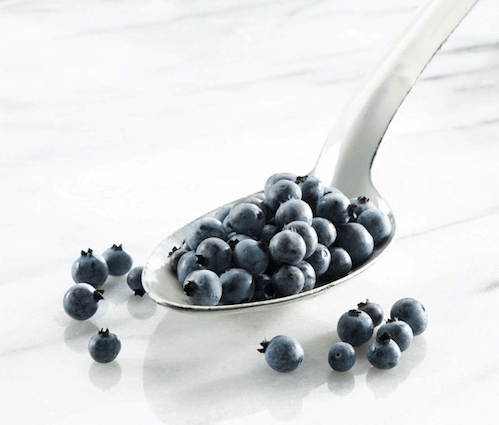Can’t remember where you glasses are? What was the name of the dental hygienist? Darn it, what was the name of that spice I needed again! Everyone feels forgetful once in a while. Being somewhat “forgetful” is normal and could become increasingly more common as we grow older—even for healthy adults. However, for some people, advancing age brings more serious cognitive changes that can greatly impact quality of life, safety and overall health.

This month marks National Alzheimer’s Disease Awareness Month, and according to the Alzheimer’s Association, Alzheimer’s disease is the sixth leading cause of death in the U.S., and there is no cure for it. Of course, not all age-related cognitive changes are signs of Alzheimer’s disease, nor are they all as serious, thankfully. Some risks for Alzheimer’s, such as age and family history of the disease, are out of our control, and this is true for more mild cognitive changes as well. So what can we do to help keep our brains as healthy as possible as we get older? One thing nearly everyone agrees upon: eat a healthy diet packed with fruits and vegetables.
Bring on the “brainberries!”
The impact of berries on cognition and memory has been a topic of scientific study since the late 1990s. Initially through animal research and now through human trials, scientists have continued to find that berries, including blueberries and wild blueberries, have a measurable, positive impact on aging brains. Of course, we’re a tad partial to Wild Blueberries, which we’ve been known to nickname “brainberries.” What is it in blueberries that helps with brain health? Scientists are still studying the mechanisms of action, but it appears to be related to the large amounts of beneficial plant chemicals contained in the berries. These natural chemicals, called polyphenols (or phenolic compounds), are the key. And it just so happens that Wild Blueberries are especially high in phenolic compounds.

Blueberries and Wild Blueberries may improve memory
Robert Krikorian, PhD, who leads the University of Cincinnati’s Cognitive Aging Program, conducts studies to identify mechanisms associated with age-related cognitive decline and to improve memory function in middle-aged and older adults. Krikorian has used Wild Blueberries as well as (and in combination with) cultivated blueberries in some of his studies and has found that regular consumption can enhance cognitive function in older adults. In a recently completed trial, Krikorian’s team observed that study participants who received a powdered Wild Blueberry/blueberry supplement (versus those who received a placebo) performed better on a verbal learning task with improved memory discrimination. In addition, blueberry-treated participants reported enhanced effectiveness when performing everyday tasks. According to Krikorian, “These recent findings corroborate our prior results and provide more evidence that consumption of blueberries may improve memory function and, possibly, reduce risk for cognitive decline with aging.”
More evidence points to beneficial polyphenols in blueberries
Cognitive and motor deficits occur with aging, and these changes are of particular concern for older adults. Barbara Shukitt-Hale, PhD, a USDA staff scientist at the Laboratory of Neuroscience and Aging, Human Nutrition Research Center on Aging at Tufts University in Boston, has studied both cultivated blueberries and Wild Blueberries and their impact on memory and motor function in animals and humans. “Effective preventative measures need to be explored and developed, and blueberries in particular have been of interest because they are widely consumed and contain a variety of polyphenols known to have beneficial health effects,” she explains. A recent study conducted at her lab suggests that the regular addition of blueberries to the diet of healthy older adults can improve some aspects of executive function, and these improvements were most evident in the most challenging cognitive tests. Adding blueberries to your daily diet is a proactive step that Shukitt-Hale suggests, as it may help maintain brain health as you age. She adds, “Dietary interventions with polyphenol-rich foods such as blueberries, present a potentially fruitful strategy for combating some of the deleterious effects of age-related neurodegeneration.”
Make getting your Wild blues a year-round habit

It’s easy to get your daily dose of Wild Blueberries all year long by keeping frozen berries on hand. Check the frozen fruit section at your supermarket or warehouse club store and look for the words “Wild Blueberries” on the packaging to make sure you’re getting the tiny, polyphenol-packed “brainberries.” You’ll be pleased to notice that frozen Wild Blueberries retain their shape upon thawing and when used in baked goods, and don’t “deflate” like larger blueberries can. Need some ideas for how to use Wild Blueberries? Check out the extensive recipe files at the Wild Blueberries website.


